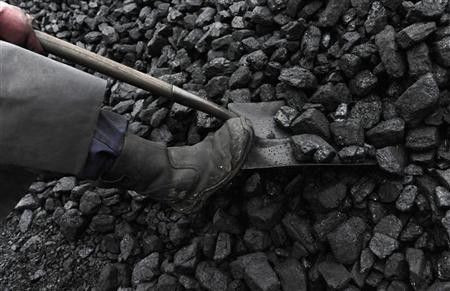Blame Coal's Hardship On Economic Factors, Not Federal Regulations, Says EPA Administrator

U.S. Environmental Protection Agency Administrator Lisa Jackson said Monday her environmental policies are not to blame for the coal industry's current hardships, despite tougher emission standards the industry says increases their costs and dampens demand for coal.
Speaking to the Guardian, Jackson said coal's share of electricity generation in the U.S. is diminishing for purely economic reasons, and the EPA's enforcement of carbon capture devices is not a major factor.
The U.S. Energy Information Administration said coal's share of electric generation has fallen to 34 percent, its lowest point since 1973. It's being supplanted by natural gas, whose price is depressed thanks to advances in drilling techniques. Because it's cheaper to burn natural gas, utilities are making the switch.
So in my opinion the problem for coal right now is entirely economic, Jackson said. The natural gas that this country has and is continuing to develop is cheaper right now on average. And so people who are making investment decisions are not unmindful of that. How could you expect them to be?
Jackson said the coal industry has been suffering from a perception that coal is a dirtier form of energy generation, and that her administration's policies are not targeting the industry per se, but rather the pollution it creates.
I always tell people, it's not about coal, it's about the pollution that for too long has been associated with coal, Jackson said.
In March the EPA unveiled carbon reduction rules that seek to limit the amount of carbon dioxide released into the atmosphere. Natural gas plants fall within its guidelines, but coal-fired plants do not, and must invest in emission-reducing technologies that increase the cost of running the plant.
With increased costs, utilities are scaling back their coal-powered plants, said the National Mining Association, which accuses the EPA's regulations of forcing coal power plants to scale back a total of 24.6 gigawatts of electricity. That is enough to power 18.5 million homes.
The mining association has said the EPA's regulations do not promote better stewardship of the environment, but rather are designed to hurt the industry and impair the reliability and affordability of domestic energy supplies by severely diminishing the diversity of electricity generation sources.
© Copyright IBTimes 2024. All rights reserved.





















